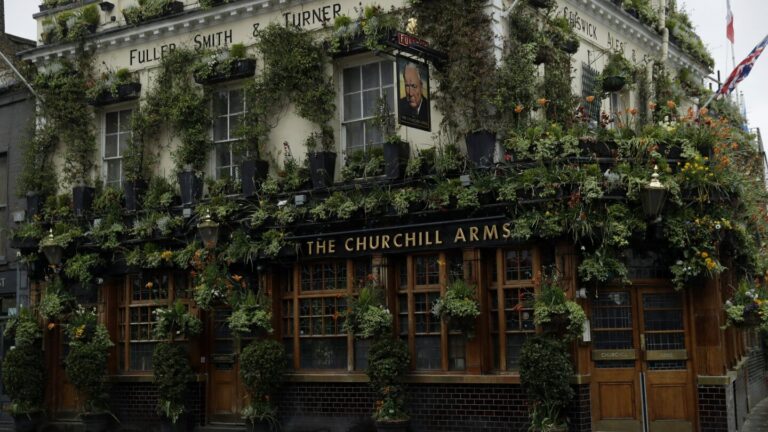LONDON (AP) — The phone rang and the voice on the other end asked simply: “Would you like a drink?”
The reply was equally spot on: “Yeah, that’s right.”
That short conversation, or one similar to it, will likely be played out across the UK when pubs reopen their doors to thirsty patrons.
Pubs were sorely missed during the UK’s coronavirus lockdown. In fact, all of the UK’s roughly 47,000 pubs were ordered to close on March 20, three days before Prime Minister Boris Johnson announced a full lockdown, according to the British Beer and Pub Association.
“We are taking away the ancient and inalienable right of free-born people in Britain to go to a pub and I understand how people feel about that,” he said when announcing the closure.
And as he further extended most lockdown restrictions on Sunday, he referred to “darkened pubs” and conveyed an awareness of the social impact of fighting coronavirus, with nothing looking likely to change by July.
As an industry that has seen thousands of pubs close over the past few decades and faces the possibility of thousands more going bust, many are doing what they can to give back to their local communities, such as The Prince in north London, which is offering takeaway 3.5 pint (2 litre) containers of freshly brewed beer to customers as they queue.
That’s fine, if you just want to drink a beer your living room or garden might be fine, but it’s just not the same.
Pubs are, after all, second homes to drinkers and non-drinkers alike, places where friends and family gather, in good times and bad, for first dates and break-ups, or just to kill time with nothing in particular to say or do.
They are the hosts of a rich celebration of life.
Pubs hold a special place in British culture, unmatched anywhere in the world. From tiny villages in the cider-producing regions of South West England, like the Montagu Inn in Somerset, to whisky-focused havens in Scotland, like the Stein Inn on the Isle of Skye, pubs are a vital component of our shared identity and common connection.
Some, like the Grose Inn in North Wales, are hundreds of years old and in secluded little spaces, where conspiratorial debates seem to take place in isolated corners. Others are new, shiny expanses, falling prey to the din of Six Nations rugby internationals, or more like the old sports grounds where our fathers stood on Saturday afternoons.
It has everything from the finest dining to weekly quizzes.
There are all kinds of names to bond over, which is a history lesson in itself. Who’s Jon Snow? The 19th century epidemiologist, of course. This duke, that duchess. Do a little research. And others that are just plain weird. Really? The Pyrotechnics Arms in South East London and the Bucket of Blood in Cornwall.
It changes throughout the year: in winter, the log fires are roaring and you can cosy up with a glass of real ale, while in midsummer the beer garden turns into a sort of mini festival, which is particularly refreshing as it is child-friendly.
Perhaps what I miss most is the intimacy between strangers. The exchange of opinions. It’s where many of us learned and use diplomacy skills. Sometimes, especially if we’ve had too much to drink, it can get too much. A mean word here, an inappropriate look there, can darken the atmosphere. Or, worse, it can turn violent.
Without pubs, nothing works well. Even in times of social distancing, their reopening will perhaps more than anything else mark the start of the road back to normality. After the hardships of many months of lockdown, communities need to re-engage and pubs will undoubtedly be a primary means of lifting people’s spirits and ensuring that life’s rich drama can be heard once again.
Would you like a drink?
Ah, yes!
___
Follow AP’s pandemic coverage at http://apnews.com/VirusOutbreak and https://apnews.com/UnderstandingtheOutbreak.


